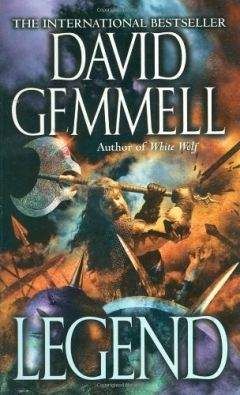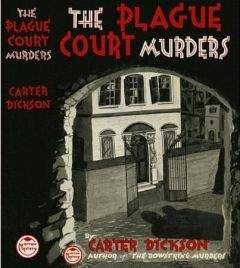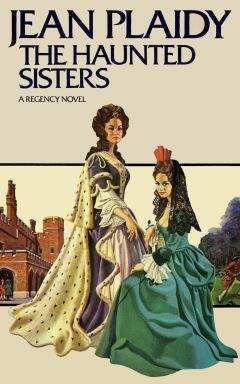Jean Plaidy - For a Queens Love: The Stories of the Royal Wives of Philip II

Скачивание начинается... Если скачивание не началось автоматически, пожалуйста нажмите на эту ссылку.
Жалоба
Напишите нам, и мы в срочном порядке примем меры.
Описание книги "For a Queens Love: The Stories of the Royal Wives of Philip II"
Описание и краткое содержание "For a Queens Love: The Stories of the Royal Wives of Philip II" читать бесплатно онлайн.
Rides through the palace grounds or in the surrounding country had a new interest. He imagined Jeanne beside him. He seemed to grow taller; he was bolder. Don Zuñiga was pleased with him; he scored victories in the tiltyard, and he sat his horse with more grace and firmness than he ever had before. It was true that his thoughts wandered during lessons, but as Dr. Siliceo had decided that the Prince could do no wrong, that was unimportant.
Jeanne! Little Jeanne! He was impatient for her. He thought of protecting her by day and loving her by night.
In the quiet of his bed, he said to her: “If I should seem cold, do not believe that I am. I am by nature cold, it is true … but that is for others, not for you. Sometimes I do not think I am really cold. It is just that there is so much for a prince to endure, and he must not show his feelings. With you, you see, I am loving and warm.”
For strange, exalted weeks, Philip was in love with little Jeanne of Navarre whom he had never seen.
Then one day the dream was shattered.
The Emperor was in a fury. He was storming about the palace, and anyone who had good sense kept out of his way. The Emperor’s rages were terrible. He sent for his son. The boy stood fearful before him, but carefully hiding his fear.
“That rogue!” cried Charles. “That cheat Francis! Do you know what he has done? He has taken your bride from you. He has married the girl to Guillaume de la Marck. He is laughing at us … snapping his fingers at us. He has cheated her father. He has lured the Duke of Clèves—this Guillaume de la Marck—from his allegiance to me by a bride who is a bribe from Navarre?”
“But, Father,” cried Philip, for once forgetting his calm, for love was something which he had not yet learned to control, and even if he had been in love with a phantom Jeanne, he had been in love, “we cannot let this happen. We must lead an army to Paris. We must carry her off.”
“But, my son, she is already married. The girl was forced against her will. Ah, she had spirit, that Jeanne. She would have been a good Queen of Spain. She protested … defying her uncle … defying her mother. She was beaten to within an inch of her life, I hear. But Francis had his way. He has married her to that scoundrel of Clèves. Master Guillaume shall rue the day, for I’ll not rest till I have him on his knees.”
“They … they beat her!” cried Philip.
“Until they were afraid they would kill her with their whips. And what good would a corpse be to Francis or to Clèves? The girl had not a chance against them. But they’ll regret it. They shall regret it. Holy Mother! I’ll set out at once. I’ll take up arms against this upstart prince. He shall wish he had never been born to snap his fingers at me and side with my enemy.”
So the Emperor left Spain on a campaign of vengeance while Philip mourned the loved one whom he had never seen.
He dreamed of his Jeanne, beautiful and weak without her Philip to protect her. He wept in the quietness of his room as he seemed to feel the whips on his own soft body.
Jeanne! Poor little Jeanne! How brave she was. She had written her protests and taken them to the Cathedral, where she had read them to the bishops. She had defied her uncle, the King of France, until they had beaten her almost to death.
This sorrow was something he could not hide. But Ruy, his confidant and friend, seemed to understand. Ruy had some comfort to offer; he introduced Philip to women.
Could nothing happen singly? Must he lose not only the girl who was to have been his wife, but his mother also?
Queen Isabella was lying in her bed, and all the ceremonies which accompanied the dying of a Queen were now being performed. Leonor sat in the death-chamber, rocking to and fro in her misery. Philip must stand by the bedside impassively hiding his grief, as became the heir of Spain.
Isabella was not sorry to go. She looked at her son and felt proud of him. She had nothing with which to reproach herself. As a beautiful princess, she had come from Portugal thirteen years before—with a dowry as attractive as her person—to marry her cousin, the Emperor Charles. The marriage had not only brought riches to Spain, but friendship between Portugal and that country. They had been happy—she and Charles—and if the Emperor had been guilty of certain infidelities, that was natural enough, since he was forced to spend so much time away from her. He had always behaved with the utmost dignity and decorum when in his own court; and she must rejoice when she contemplated the fate of those two French Queens, wives of Francis, who had allowed their court to be ruled by his two chief mistresses, first Madame de Chateaubriand, then Madame d’Etampes; and even more so would she rejoice when she recalled the fate which had befallen Queen Anne Boleyn of England.
So she felt hers to have been a happy life because she had done her duty. This pale boy with the serious face was her gift to her husband; she had two sprightly daughters also. It was true that two other boys she had borne had not lived; but Charles had his heir in Philip.
She had been popular in Spain; she had made many pilgrimages throughout the country; she had led a life of piety and usefulness; she had given alms to the poor and supported the Holy Inquisition; she had worked diligently at the beautiful tapestry that would proclaim her patience and her industry to the world long after she was dead.
She would be happy to leave this life, and she knew that her time for departure was fast approaching.
Now her attention was caught by the slight figure kneeling at her bedside. There were no tears on his face, yet she knew that he was grieving. Was he thinking of the days when, as a small boy, he had played with the jeweled crucifix that had hung about her neck? She remembered that she had been jealous of his fondness for Leonor; but now she could be glad of Leonor’s devotion. Leonor would be a mother to him, and, in spite of his dignity, he was still a boy. She wanted to protect him, to stay alive a little longer. She wanted to talk to her husband about Philip. Perhaps she was being foolish, perhaps her mind was wandering a little, but she wanted to say something like this: “Do not burden him too soon. Do not make a king of him before he has been a young man.” When he had been a boy they had tried to make a man of him; when he had been a baby they had made of him a boy. He was like a delicate hot-house flower, forced, always forced to be older, wiser than his years allowed.
She struggled up from her pillows as she tried to say her husband’s name. “Charles … Charles …” she wanted to say, “he is but a child yet. Let him play. Let him learn to laugh and be happy. Do not make a king of him yet …”
Someone was putting a cup to her parched lips. “This is what your Highness is asking for …”
She shook her head and held out her hand to the boy. He took it, but as she smiled at him he seemed to fade before her eyes.
“Philip …” she tried to say, “be happy … be young.”
But he could not tell what she was trying to say to him. He stood stiff, fighting the tears, aware of black-clad men in the chamber whose eyes would be upon him. He must resist the impulse to fling himself upon her, to remind her that she was his mother and that he was only a little boy after all.
But there was too much ceremonial, too many solemn faces, too many important men to remind him that she was no ordinary mother; she was Isabella, Queen and Empress, and he was the most important boy in the world because it was hoped that one day he would rule all of it.
It was Philip who must lead the procession. His father had decided that this should be so. Charles had shut himself up in the monastery at Toledo, and there, with the monks, he was praying for the soul of Isabella while the cortège journeyed slowly across Spain to Granada that Isabella might be laid to rest beside great Ferdinand and Isabella, who were her own and Charles’s grandparents.
Philip’s eyes were hurt by the glare of the sun, for it was hot May and the way through the foothills of the sierras and across the arid plain was tedious. As they passed through the towns he saw black cloth hanging from windows; everywhere was the black of mourning. There were black-robed monks and the hearse was covered in black cloth; the soldiers wore black feathers in their helmets; and among the black shone the silver crucifixes.
Southward rode the solemn procession; it crossed the Tagus by means of the bridge of Puerta del Sol; it wended its way from the valley of the Guadiana, through the foothills of the Sierra Morena to the valley of the Guadalquivir. Peasants watched them as they passed; they wept for good Queen Isabella, saying prayers for the salvation of her soul. Philip was interested in the subjects of that kingdom, which would one day be his; he saw farmers, tanned by the sun, bent by long hours of toil in their unfertile land, pausing now to watch the cortège pass; there were girls leaving the clothes they were washing in the streams to kneel by the roadside. Muleteers stopped beating their starving animals to look and mutter a prayer for the departed Queen. There were gypsy girls who refused to be solemn and smiled on him as though they did not know he was the Prince of Spain. He saw beggars who looked wistfully at the jewels in his clothes; he noticed the speculative glances of would-be robbers.
And into Granada at last they came—that city where every stone seemed to have been laid by an Infidel. In the Capilla Real, they set down the coffin of Isabella. There she lay beside the great sarcophagus adorned with alabaster images of Ferdinand and that other Isabella.
It was a solemn moment. None realized this more than Philip. He thought of his great-grandmother Isabella, who had defeated the last Moorish King, the great Boabdil himself, and had forced thousands of Moors to become Christians on pain of death.
He knelt on the tiles; he listened to the chanting voices about him as the last funeral rites were performed. He thought of his father who was praying for his mother’s soul with the monks of Toledo; and he thought of the mother whom he would never see again.
The Emperor had insisted that Philip should undertake the journey to Granada without his company; Philip knew this meant that any childhood that might have been his was lost forever.
Life could not be all solemnity, and the Emperor did not wish that it should be. Yet he insisted that Philip should spend hours with him each day learning statecraft.
“I am growing old,” said Charles, “but I care not, for soon you will be ready to take over my burdens.”
Those were happy moments for Philip, but he was always disturbed lest he might not give the right answers to his father’s questions. He looked to the future with apprehension; he was afraid that when his time came he would be unable to make the right decisions.
His father watched him with quizzical eyes. He was intelligent, this Philip, but slow; he was afraid of choosing the wrong course; his decisions would be laboriously made; there was no flash of genius there. Philip would never have brilliant inspirations.
Yet, steadiness was a good quality, the Emperor reminded himself. An unswerving sense of duty was even better.
Again and again Charles warned Philip of the gentlemen of the court, the grandees and the statesmen. “Trust them not. Never act on the advice of one of them. Listen to what all have to say, and weigh their words. They are full of hypocrisy. They will utter fine words because you are a prince and they seek your favors. They are greedy. They look for advancement. Listen to their counsel but … decide for yourself.”
Philip listened eagerly. His desire not to disappoint touched the Emperor. On the whole, thought Charles, I am well pleased with this son of mine.
And when he left Spain once more, although Philip was only sixteen, he appointed him Regent, entrusting him with secrets that he would disclose to no other. He was to be guided in all things by the councillors whom Charles had chosen, but he, himself, was to make final decisions.
It was a test and, as it turned out, he came through it with honor.
He was indeed a man and, Charles decided, it was time he had a wife.
He was still the same sentimental youth who had loved Jeanne of Navarre. Now he loved another, and he prayed that this time he might not be thwarted.
He had her picture; he carried it beneath his doublet in a silver locket. She was a dark-haired, dark-eyed girl with a soft mouth in a face as round as a baby’s. It was the bewildered childishness of her that made him know he would love her.
He had been mistaken in Jeanne of Navarre. She was a fiery girl of great spirit who would never have needed his protection as this baby-faced Maria Manoela would.
Twenty times a day he sought to be alone that he might look at the miniature. He must be young sometimes; he could not always think of matters of state. If he could not be a careless boy, he could be a lover, he could be a husband, for that was expected of him.
“Maria Manoela.” He murmured it to her picture. He said it before he went to sleep and when he awoke in the morning. “Do not be afraid, little Maria Manoela. These solemn-faced people can do us no harm. We will laugh at them when we are alone together. We shall be the happiest King and Queen Spain has ever known.”
He would tell her how he might have married Marguerite, daughter of the King of France, how he was allowed to choose between them, how he had looked at Maria Manoela’s pictures and begged that she might be his wife.
There were times when fears would intrude on these pleasant thoughts. The blood-tie between them was strong, for Maria Manoela was not only his first cousin through his father, but through his mother also. Some members of the court had said that the relationship was too close. They whispered Juana’s name—Juana, his mysterious grandmother. They spoke of the two little brothers who had been possessed by devils (for the second had died in the same manner as that one whom Philip had found writhing on the nursery floor). It was a strange thing, some said, that Juana should have been possessed and that these two children should have been also. They asked one another how God would view the proposed marriage between such close relations.
“The Pope will grant a dispensation,” was the answer to that. “The Emperor will see that he dares do no other.”
Philip trembled as he thought of all the marriages that had been arranged for him. How could he be sure that his little Maria Manoela would be allowed to come?
So the pleasant anticipation was tinged with apprehension.
The Primate, Cardinal Tabera of Toledo, brought the news to Valladolid from the Pope.
How difficult it was for a young lover to be calm, to sit on his state chair surrounded by the grandees and members of the council waiting while all the ceremonies took place, when he wanted to shout at them: “Well, what news? What says the Pope? Has he dared defy my father? Is she to come or am I to be disappointed again? I will have my Maria Manoela. I will.”
Подписывайтесь на наши страницы в социальных сетях.
Будьте в курсе последних книжных новинок, комментируйте, обсуждайте. Мы ждём Вас!
Похожие книги на "For a Queens Love: The Stories of the Royal Wives of Philip II"
Книги похожие на "For a Queens Love: The Stories of the Royal Wives of Philip II" читать онлайн или скачать бесплатно полные версии.
Мы рекомендуем Вам зарегистрироваться либо войти на сайт под своим именем.
Отзывы о "Jean Plaidy - For a Queens Love: The Stories of the Royal Wives of Philip II"
Отзывы читателей о книге "For a Queens Love: The Stories of the Royal Wives of Philip II", комментарии и мнения людей о произведении.

















